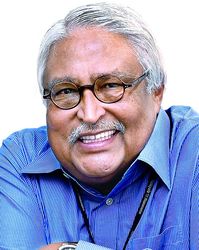
KING’S COLLEGE LONDON will open its b-school in November, and in a hallowed address. Bush House, in central London, used to be the headquarters of the BBC World Service from 1941 to 2012. More interestingly, King’s Business School will not offer an MBA.
Stephen Bach, executive dean of the school, said that there did not appear to be enough support for a US style, two-year MBA programme. Instead, King’s will focus on undergraduate courses, focused training for corporate clients and specialist master’s degrees in subjects like finance, management and digital management. King’s already has innovative courses like MEng, electronic engineering with management. From Bach’s statement, three things jumped out at me. He said employers were looking for “talent at an earlier stage”, and they wanted “new students who are very strategic in their thinking, but are still malleable”. Earlier. Strategic. Malleable.
And, King’s is not alone. The University of Wisconsin-Madison has imposed a one-year suspension on admissions to its full-time MBA programme. Milwaukee Journal Sentinel reported that Wisconsin School of Business’s new strategy “could include a greater focus on older, part-time students”. These courses are usually executive training programmes, I believe. The university’s faculty will vote in November to decide whether it should pull the plug on the traditional MBA programme.
The university said the suspension would allow it to “conduct a timely review of how the WSB graduate portfolio should evolve in light of both competing demands for WSB resources and a changing market for graduate business education. Higher education, like business, is in an unprecedented period of change along several dimensions, including technology, globalisation, digitisation, and the changing expectations of students.”
Against this backdrop, THE WEEK brings you its annual special on the best b-schools in the country. Why do this, if the demand for MBAs is waning? Simple, there is more to business schools than MBAs, and Indian b-schools are evolving fast. Professors who talked to us for the cover story emphasised that technology had changed teaching and the marketplace. Hence, students are being taught differently, and quite different things, say, from what was taught a decade ago.
As long as there are businesses, they will need to be managed. As consumers change, the nature of businesses will also change and the shape of managers will, too, to match that. Business education will surely reflect these changes. Just as companies will pick the young, the strategically adept and the malleable, students will pick the business schools that are fastest on their feet. And, I hope this issue will help prospective students make that crucial choice.
Of course, no Indian b-school has done what Arizona State University’s W.P. Carey School of Business did. Since 2015, its MBA programme has been free, no strings attached. Course fee: $0. In 2016, the number of applicants jumped by 162 per cent. But, getting in is not easy, as it is reportedly America’s fourth most selective MBA programme.





